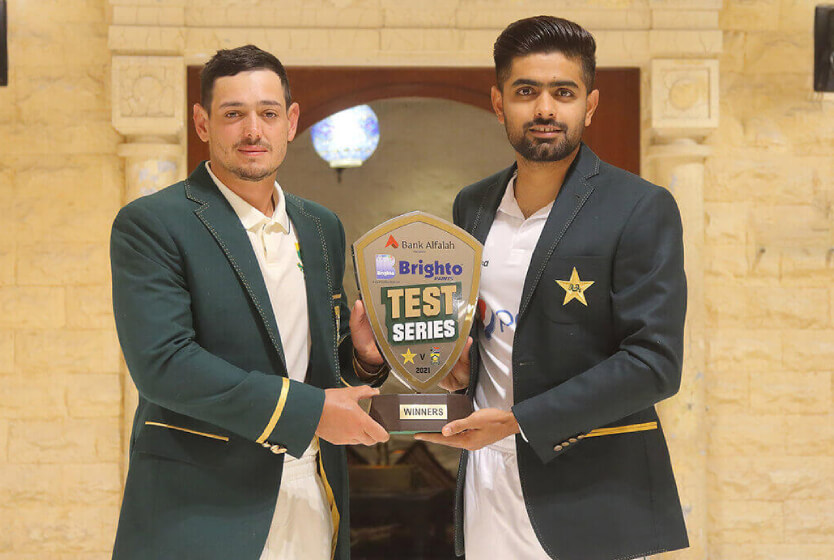
Mohammad Rizwan’s Century: More Than Just Runs
Two young, promising cricketers have gone on to become leaders for Pakistan and South Africa. We take a look at the journey that brought them here.
On the 26th of January, 2021, two captains in their mid-20s went head-to-head for the first time in the premium format of the game that is Test cricket. Babar Azam and Quinton de Kock have had a similar start to their careers. Both have come through their respective systems at the grassroots level. However, since the most prominent event for young cricketers is the Under-19 World Cup, it wasn’t until both Babar and Quinton made their Under-19 debuts in 2009 and 2010, respectively, that they got the real spotlight. Both of these batsmen displayed their talent and skill immaculately and consistently. This eventually led to them becoming the captains of their teams.
Under-19 Clash
It was the 13th of January, 2012, when the Under-19 teams from Pakistan and South Africa faced off against each other at the Stellenbosch University Ground to prepare for the upcoming Under-19 World Cup starting in August 2012. This face-off was a part of the tri-nation series scheduled between the two teams along with Zimbabwe. The two captains leading their respective teams were Babar Azam and Quinton de Kock. A total of 7 matches were played between the two teams, 4 of which were a part of the tri-nation series, and a 3-match series was scheduled right after it – between Pakistan and South Africa. Babar was more dominant in the battle of captains as Pakistan managed to win 4 out of these 7 contests. However, Quinton, the batsman, had the edge throughout the series. He scored two centuries compared to only two fifties from Babar.
Soon, the Under-19 World Cup kicked off. Dominating their way through the group stages, both Pakistan and South Africa were undefeated and reached the quarterfinals with ease. However, things took a different turn for Pakistan as they lost to India. Meanwhile, South Africa managed to defeat England and went through to the semi-finals. With Pakistan finishing 8th and South Africa finishing 3rd, it was vividly clear that South Africa, under the leadership of de Kock, surpassed the performances of the star-crested boys.
At the Under-19 level, Babar played 36 ODI matches representing Pakistan, scoring 1271 runs at an average of 38.51 on the back of 3 centuries. That record isn’t too good but isn’t too bad either, but when compared to his fellow captain’s record, Babar falls short significantly. Quinton de Kock played 30 matches and scored 1409 runs with 4 centuries @ 48.58.
Entry To International Cricket
With de Kock having a stellar record along with the fact that he was a couple of years older than Babar, he made an early debut. He got the chance to don South African colors on the 21st of December 2012 in a T20I against New Zealand. That was around 2.5 years before Babar stepped into the international arena. Ever since Quinton made his debut, he hasn’t looked back. Quick to relieve AB de Villiers off the wicket-keeping duties, de Kock did not only have safe hands but was also a flamboyant left-handed batsman who opened in limited overs-cricket. Hence, de Kock was a mainstay in the making. Not only did he successfully fill the opening void of a left-handed opener left after Graeme Smith’s retirement, but he also had the adaptability to adjust his game to the Test format.
De Kock didn’t take much time to cement his place in the national side. In just his 9th ODI in November 2013 against Pakistan, he scored a match-winning 112 off 135 balls. He showed amazing consistency and started breaking record after record. In just a matter of two years, de Kock was rewarded with a place in the ICC World ODI XI of 2014. Two years later, in 2016, he also became the ODI wicket-keeper of the World XI.
Getting the Limelight
With his splendid performances, de Kock has managed to make/break a lot of records. He is the fastest South African to reach 1,000 ODI runs (joint third-fastest overall after Fakhar Zaman and Imam-ul-Haq). Additionally, he was also the quickest wicket-keeper in terms of innings (34) to 150 Test dismissals before Tim Paine did this in 33 innings. In terms of matches, he is also the fastest wicket-keeper to complete 200 dismissals in Tests (47), beating the previous record held by Adam Gilchrist. To top it all off, he also hit the fastest T20I half-century by a South African (17 balls).
While de Kock had already established himself as a regular in the South African side, Babar paved his way to international cricket in 2015 against Zimbabwe. He started with an impressive 54 off 60 balls and continued his momentum in the upcoming series. However, it wasn’t until Babar played against West Indies in the 2016 ODI series that he truly got the limelight. Before this three-match series, Babar had zero ODI hundreds, and after this one, he had three. That’s right! His first three centuries came in consecutive matches.
In this series, the world had seen the unearthing of a classy international player whose potential was known to everyone watching. Still, it’s unlikely that anyone would have thought that just a few years later, Babar would make a fool out of Dale Steyn by caressing him for crisp cover drives consecutively. It was a score that may not be in triple figures, but Babar’s quickfire 72 consisting of 15 aesthetically hit fours against the likes of Steyn, Rabada, Olivier, and Philander is one of the best Test innings that he has played. This series and innings hold a lot of significance in Babar’s career. Until then, even though Babar was making headlines in limited-overs cricket, his Test career hadn’t yet seen the glory that it was expected to. It gave him the much-needed kick-start and confidence that he required in the format. Since then, his Test ranking and performances have only improved with time.
Babar’s Brilliance
Babar was the leading run-scorer for Pakistan in 2017 in ODIs and T20Is with 872 and 352 runs. At the 2017 PCB awards, he was awarded Pakistan’s ODI Player of the Year, while in 2018, he won the T20I Player of the Year award. Moreover, he was also listed in 2017’s ICC World ODI XI for the first time. Babar was also a vital cog in Pakistan’s triumph against India in the Champions Trophy final in 2017, where he scored 46 crucial runs.
Even though it wasn’t until November 2018 when Babar scored his first Test century, he has proved to be an excellent late bloomer in the format. In the ongoing World Test Championship, Babar’s average is 70.58, second only to Marnus Labuschagne’s 72.82. In the 2019 World Cup, Babar’s heroics, including his maiden World Cup hundred against New Zealand, saw him break Javed Miandad’s record of most runs in a single edition of a World Cup by a Pakistani. He amassed 474 runs, on the back of which Pakistan finished 5th at the World Cup.
T20Is seem to be a piece of cake for Babar. He performed well in the T20I series against New Zealand in 2018 and contributed to the team winning the series 2-1. Babar was the leading run-scorer with 109 runs. He had scores of 41, 50*, and 18 in these T20Is. He became the No. 1 T20I batsmen, the second Pakistani to achieve this after Misbah-ul-Haq. However, he soon slipped to the No. 3 position. He regained the No. 1 spot in the rankings after a successful series against West Indies and made sure to hold the throne for 22 months with consistent performances before losing the top spot to Dawid Malan. One of Babar’s best T20I performances came in the second T20I against West Indies in 2018, where he scored an unbeaten 97 runs (58 balls), which won him the Man of the Match award.
National Team Captaincy
In October 2019, he was named captain of the Pakistan cricket team in T20Is before the Australia series, which Pakistan ended up losing. It was an unwanted start to his captaincy career. However, Babar was quick to recover, and since then, his captaincy record has only improved. Gradually, the PCB handed over full control to him, appointing him as the ODI captain in May 2020 and handing him Test captaincy in November 2020.
His counterpart, Quinton de Kock, has also been bestowed with national captaincy duties in roughly the same timeframe. He was assigned the limited-overs leadership in early 2020. He was also temporarily appointed Test captain in December 2020, ahead of the series against Sri Lanka. De Kock kicked off his tenure in style as South Africa won the series 2-0 against Sri Lanka.
Conclusion
After the seven games played between these two young boys years ago, the stage is now set for Babar and Quinton to lead their national teams in future challenges. Whether it is sitting out and carrying drinks for the team or toiling hard in the nets, they have reached the pinnacle of their careers through sheer hard work and determination. It doesn’t get any more dramatic than this, does it? Good luck to both Babar Azam and Quinton de Kock!


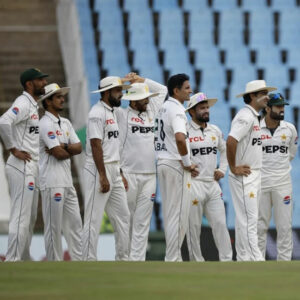
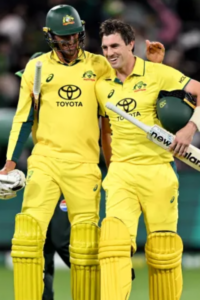

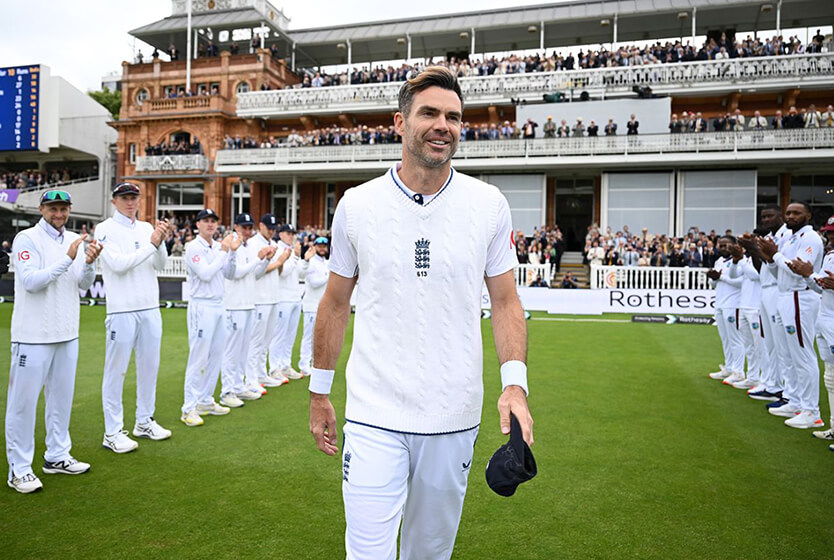

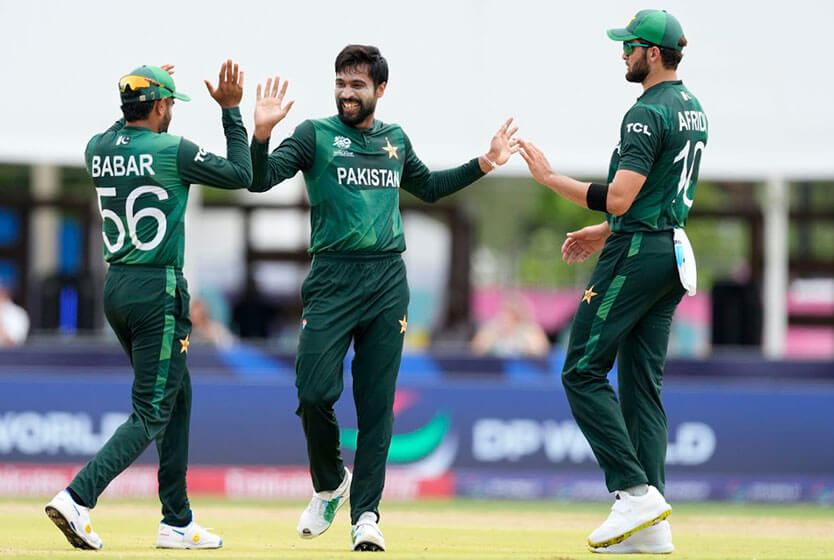
Leave a Reply